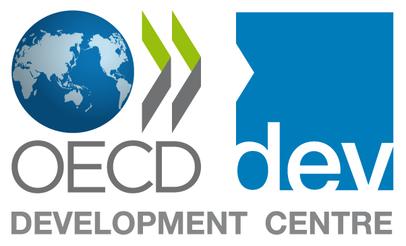Location
The OECD Development Centre was established in 1961 as an independent platform for knowledge sharing and policy dialogue between Organisation for Economic Co-operation and Development member countries and developing economies, allowing these countries to interact on an equal footing.
The Centre draws attention to emerging systemic issues likely to affect global development and more specific development challenges faced by today’s developing and emerging economies. It uses evidence-based analysis, and strategic partnerships, to help countries formulate innovative policy solutions to the global challenges of development.
Members:
Resources
Displaying 11 - 14 of 14Structural adjustment and Moroccan agriculture: an assessment of the reforms in the sugar and cereal sectors
This paper reviews the process of agricultural policy reforms in Morocco in the 1980's, with particular emphasis on the cereals and sugar sub-sectors. Agricultural policy is reviewed in historical perspective, to show that the liberalisation process which was proposed in the framework of structural adjustment reforms ran contrary to the agricultural development strategy followed by Morocco since Independence. The macro-economic performance of Morocco is examined. It shows that the origin of the economic policy reforms can be found in the necessity to seek balance of payment ssupport.
Managing the environment in developing countries
Environmental policy should be inspired by the recognition that the environment is everyone’s business; all social actors must be involved in environmental management. Policies that implicitly subsidize a wasteful and environmentally destructive use of resources are pervasive: reforms should command a high priority on economic as well as environmental grounds. Compared to regulation, market-based instruments are little used but they can be more efficient; they can also produce revenues to finance environmental improvements.
Structural adjustment and the institutional dimensions of agricultural research and development in Brazil: soybeans, wheat and sugar cane
Structural adjustment, liberalisation and the pressures of technological change are having major impact on the institutional organisation of the agro-industrial sector. In industrialised countries, the private sector is positioned to play the vanguard role in the next generation of agricultural technologies. Thus, the ability to promote and sustain new patterns of co-operation in research and development between the private and the public sectors will be a key determinant of future patterns of competitiveness.
Réhabilitation du quartier de Fort National à travers l’activation d’un Centre de Services à l’Entreprise (CSE
General
The project aims at supporting existing action towards the reduction of community- based violence by facilitating the entrepreneurship of youth through the reinforcement of their capacities and the creation of micro and small enterprises in the construction sector in the target neighbourhoods. The selected areas of intervention are among the most vulnerable of Port-au-Prince and are characterised by high social conflict and economic insecurity which result in urban violence and unstable life conditions. Efforts towards the creation of sustainable and decent jobs through professional training (aimed at obtaining State certification), production and rehabilitation of public infrastructures hope to decrease the risk of community-based violence, in agreement with the mandate of the CVR-MINUSTAH. In particular, ILO's efforts target the young unemployed to involve them in income generating activities that will contribute to the economic development of their neighbourhoods. Direct beneficiaries: 57 direct beneficiaries (30% women) aged between 15 and 35, including 8 entrepreneurs considered as "vulnerable", identified through a community participatory process. Indirect beneficiaries: - Families of the direct beneficiaries; - Residents and entrepreneurs of Fort National; - Old people, disabled people, children and all residents who will benefit from the pedestrian accesses built in their neighbourhood.



